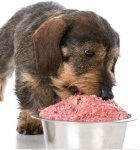The Canadian Food Inspection Agency (CFIA), announced the implementation of the Safe Food for Canadian Regulations (SFCR) effective as of January 15, 2019, that will focus on prevention and allowing for faster removal of unsafe food from the marketplace. The new regulations cover a wide range of food safety-related efforts including licensing, labeling standards, rules enforcement, and new recall protocols. These regulations also feature traceability requirements designed to help Canadian food companies that import or send food between Canadian territories track the origins of the products they manage. Other issues covered by SFCR include packaging, organic products, excluded products, and inspection standards. @ http://inspection.gc.ca/food/eng/1299092387033/1299093490225
ruth
The CFIA develops and delivers programs and services designed to protect Canadians from preventable food safety hazards, to ensure that food safety emergencies are effectively managed, and that the public is aware of–and contributes to–food safety.
ruth
The U.S. Food and Drug Administration is warning pet owners not to feed A+ Answers Straight Beef Formula for Dogs, lot 2018 20/08 20, after the Nebraska Department of Agriculture (NDA) tested and found Salmonella in the food. Lystn, LLC, also doing business as Answers Pet Food, is the brand owner of A+ Answers Straight Beef Formula for Dogs and has recalled the affected lot in Nebraska, but has not implemented a nationwide recall. The warning is issued because it represents a serious threat to human and animal health. The FDA is still working with Lystn to gather comprehensive distribution information and is issuing this warning to alert consumers about this public health risk. Pet foods contaminated with pathogens such as Salmonella are of particular public health importance because they can affect both human and animal health. Pets can get sick from Salmonella, and may also be carriers of the bacteria and pass it onto their humans. Federal law requires all pet food to be free of pathogens, including Salmonella. Pet food manufacturers must effectively manage sourcing of ingredients, processing and packing to control pathogens. Without effective control, such as cooking, raw pet food is more likely than other types of pet food to contain pathogens such as Salmonella. @ https://www.fda.gov/AnimalVeterinary/NewsEvents/CVMUpdates/ucm629447.htm?utm_campaign=1-14-2019-petfood&utm_medium=email&utm_source=Eloqua&elqTrackId=36D622A1932BECE560614F0F106491CC&elq=f241928b60264bd48af38b27a7ae770e&elqaid=6476&elqat=1&elqCampaignId=5284
https://www.fda.gov/AnimalVeterinary/NewsEvents/CVMUpdates/ucm629447.htm?utm_campaign=1-14-2019-petfood&utm_medium=email&utm_source=Eloqua&elqTrackId=36D622A1932BECE560614F0F106491CC&elq=f241928b60264bd48af38b27a7ae770e&elqaid=6476&elqat=1&elqCampaignId=5284
ruth
The Michigan Department of Licensing and Regulatory Affairs (LARA) issued two health and safety advisories due to the sale of marijuana which failed laboratory testing. The products were sold on December 27-30 2018 at HG on East Oakland Avenue in Lansing. The marijuana failed the tests for contaminants such as E. coli, salmonella, and chemical residues. @ https://www.wndu.com/content/news/Michigan-agency-issues-recall-for-medical-marijuana-products-504278581.html
A Michigan agency has issued a recall notice for several medical marijuana products that officials say failed laboratory testing.
ruth
On January 10, 2019, a federal bankruptcy court in Illinois finished paying $11.25 million to 27 people who got sick by E. coli in the 2017 I.M. Healthy Soy Nut Butter outbreak. The court-appointed evaluator accessed the damages of the victims in this case at $69 million. Therefore, the victims got only a portion of their claims. The claims are a result of an outbreak of E. coli O157:H7 in 12 states in the spring of 2016. Epidemiologic, laboratory, and traceback evidence indicated that I.M. Healthy brand Soy Nut Butter manufactured by Dixie Dew was the likely source of this outbreak. Both I.M. Healthy and Dixie Dew filed for Chapter 7 Bankruptcy. Soy nut butter made by Dixie Dew under the I.M. Healthy brand and sold by the SoyNut Butter Co. of Glenview, Illinois. It was recalled on March 4, 2017. The recalls were expanded twice to include more products, like granola. The product remained on some stores shelve many months after the recall. The amount paid is the insurance proceeds into the Bankruptcy Court in Chicago. Food safety attorney Bill Marler, who represents 20 victims in this outbreak, said that retailers like Amazon and Target, as well as suppliers Kehe and World Finer, have been sued. At the time of the recall, FDA did not release the names of the retailers of the recalled soy nut butter and granola products because it was deemed “confidential commercial information” exempt from disclosure. But since then, the FDA has shown more flexibility in disclosing such information. @ https://www.marlerblog.com/legal-cases/bankruptcy-court-expected-to-finalize-payment-of-11250000-to-e-coli-victims/
In the Spring of 2016, the CDC reported that thirty-two people infected with the outbreak strains of E. coli O157:H7 were reported from 12 states – Arizona



